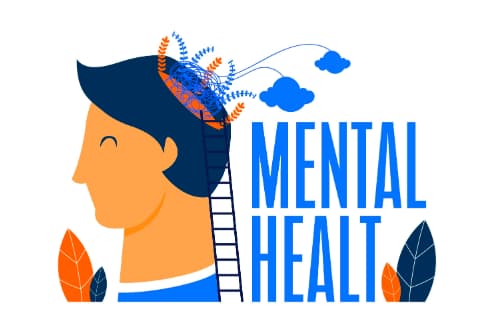Suicide, a deeply complex and personal issue, is interpreted in various ways across different religious traditions. Understanding these perspectives is crucial, especially in a world where religious beliefs significantly influence personal and societal views on life and death. This article explores the stances of Christianity, Islam, Hinduism, Buddhism, and Scientology on suicide.
Historical Context of Suicide in Religion
Historically, most religions have viewed suicide as a grave matter. Traditionally, it has often been considered a sin or a moral failing. However, the interpretation of suicide in religious contexts has evolved, reflecting changes in societal attitudes and understanding of mental health.
Religious Perspectives on Suicide
Christianity
- Fundamental View: Life is viewed as a sacred gift from God, and taking one’s own life is often interpreted as a rejection of this gift.
- Scriptural References: The Bible, while not explicitly mentioning suicide, has been interpreted to consider it under the commandment “Thou shalt not kill” (Exodus 20:13), extending this commandment to include self-harm.
- Interpretation of Suicide: Traditionally, suicide is considered a significant sin in Christianity. This stems from the belief that life is sacred and only God has the authority to end it.
- Afterlife Consequences: Historically, suicide was believed to lead to eternal damnation. However, modern Christian denominations often approach this topic with more compassion, acknowledging the complexities of mental health and emphasizing God’s mercy and understanding.
- Contemporary Views: Contemporary Christian views vary, with some denominations maintaining traditional stances, while others adopt more understanding and supportive approaches towards individuals who struggle with suicidal thoughts, often emphasizing the need for compassion and mental health support.
- Islam
- Fundamental View: Life is sacred and only Allah has the authority to take it.
- Scriptural References: The Quran explicitly states that one should not kill oneself (4:29).
- Interpretation: Suicide is considered a major sin, and it is believed that it leads to eternal punishment in hell.
- Contemporary Views: While the traditional view remains strong, there is an increasing awareness and sensitivity towards mental health issues.
- Hinduism
- Fundamental View: Life and death are part of the cycle of samsara (rebirth), and suicide interferes with this natural cycle.
- Scriptural References: Various texts discuss the consequences of suicide, often viewing it unfavorably.
- Interpretation: Suicide is generally seen as a negative act that leads to negative karmic consequences.
- Contemporary Views: Modern interpretations tend to emphasize compassion and understanding for those who commit suicide, seeing it as a result of ignorance or suffering.
- Buddhism
- Fundamental View: Life is precious and one should not harm oneself or others.
- Scriptural References: Buddhist teachings generally discourage any form of self-harm.
- Interpretation: Suicide is viewed as an unskillful act that generates negative karma and hinders spiritual progress.
- Afterlife Consequences: It is believed that suicide can lead to rebirth in lower realms of existence.
- Scientology
- Fundamental View: Scientology views life as a journey of spiritual enlightenment and self-discovery.
- Interpretation: While there is no explicit scriptural reference to suicide, it is generally viewed as a tragic end that cuts short the spiritual journey.
- Afterlife Consequences: Scientology believes in the immortal nature of the human spirit; however, the specific consequences of suicide are not clearly defined.
- Contemporary Views: The focus is more on spiritual well-being and mental health to prevent such outcomes.

Comparative Analysis
These religions, while diverse in their teachings, share a common reverence for life. Suicide is generally viewed negatively, yet there is a growing trend towards understanding and compassion, especially in the context of mental health.
Impact of Religious Views on Suicide Prevention and Mental Health
Religious teachings significantly shape the beliefs and attitudes of their followers toward life, death, and the morality of suicide. These beliefs critically influence how individuals within these communities view and respond to mental health issues and suicidal behavior. In some traditions, the perception of suicide as a sin or moral failing contributes to stigma, potentially discouraging individuals from seeking help. However, religious teachings that emphasize compassion and understanding can foster supportive environments for those struggling with mental health issues.
Religious leaders often play a vital role in guiding their communities on ethical and moral issues, including those related to suicide and mental health. Their interpretations of religious teachings can either contribute to stigma or help in destigmatizing mental health challenges. Additionally, many religious communities provide a network of support, offering counseling, social support, and a sense of belonging, which can be crucial for individuals facing mental health struggles or suicidal thoughts.
Spiritual practices such as prayer, meditation, and participation in religious services can offer solace and coping mechanisms for individuals dealing with stress, depression, or suicidal thoughts. Moreover, religious teachings often address the nature of suffering, resilience, and coping, providing a framework for individuals to understand and navigate their struggles.
Some religious groups have initiated programs to educate their members about mental health, recognizing the signs of suicidal behavior, and providing information on seeking help. There’s also an increasing trend of religious organizations collaborating with mental health professionals to provide comprehensive support, recognizing the importance of both spiritual and psychological help.
Balancing traditional doctrinal views on suicide with the contemporary understanding of mental health presents both a challenge and an opportunity for religious communities. Ensuring that religious responses to suicide and mental health are inclusive and sensitive to the diverse needs of individuals is crucial for effective support and prevention efforts.
Conclusion
Understanding various religious perspectives on suicide is vital for a compassionate and comprehensive approach to this complex issue. While differences exist, the evolving views highlight a common move towards greater empathy and support for those suffering from mental health challenges.







